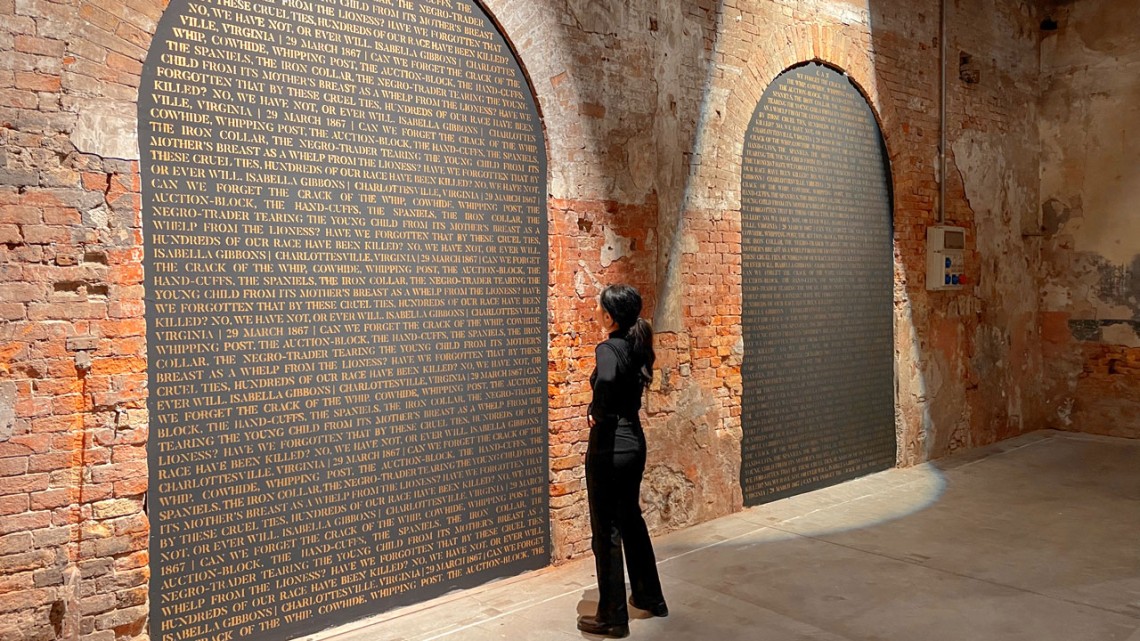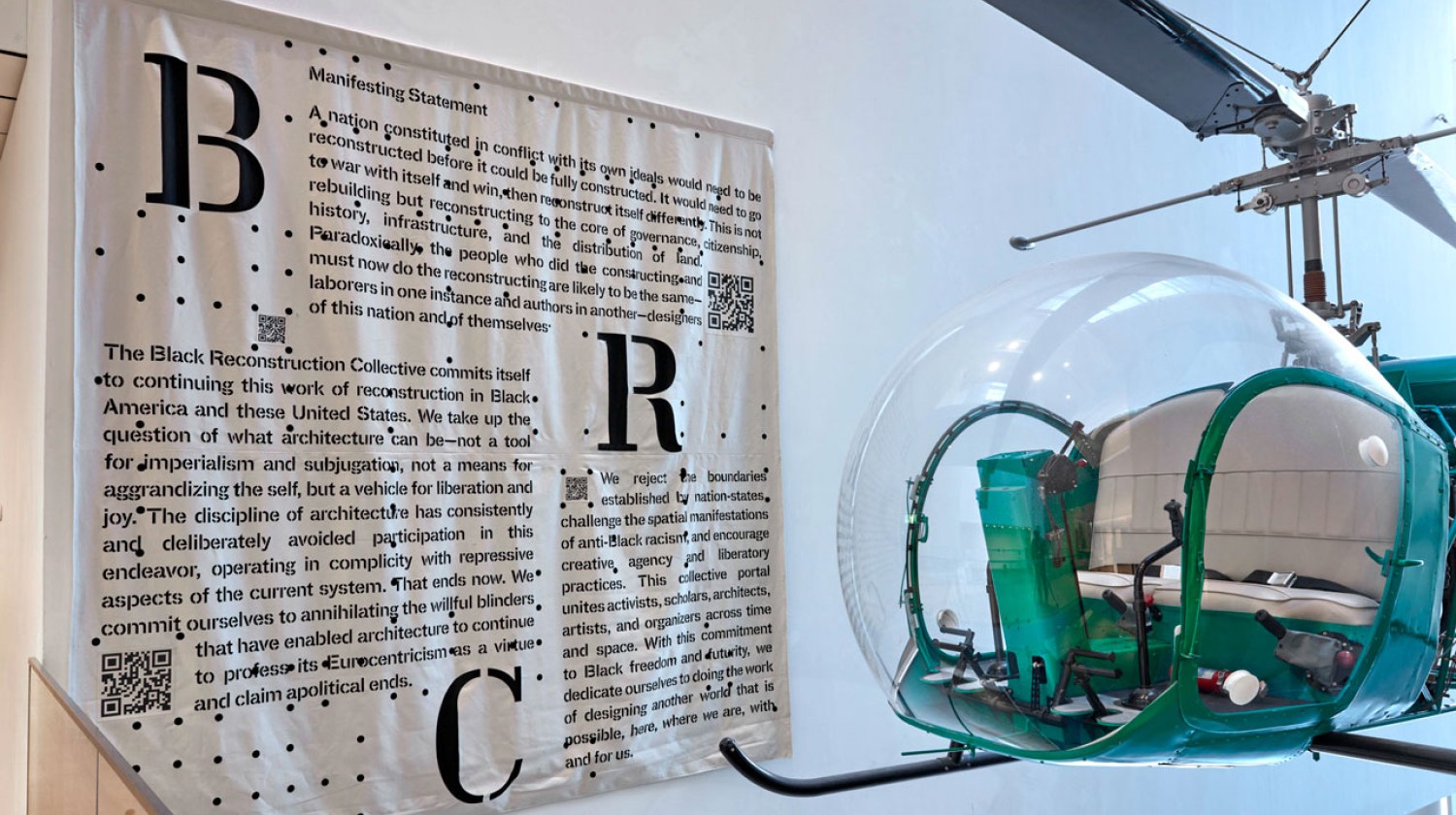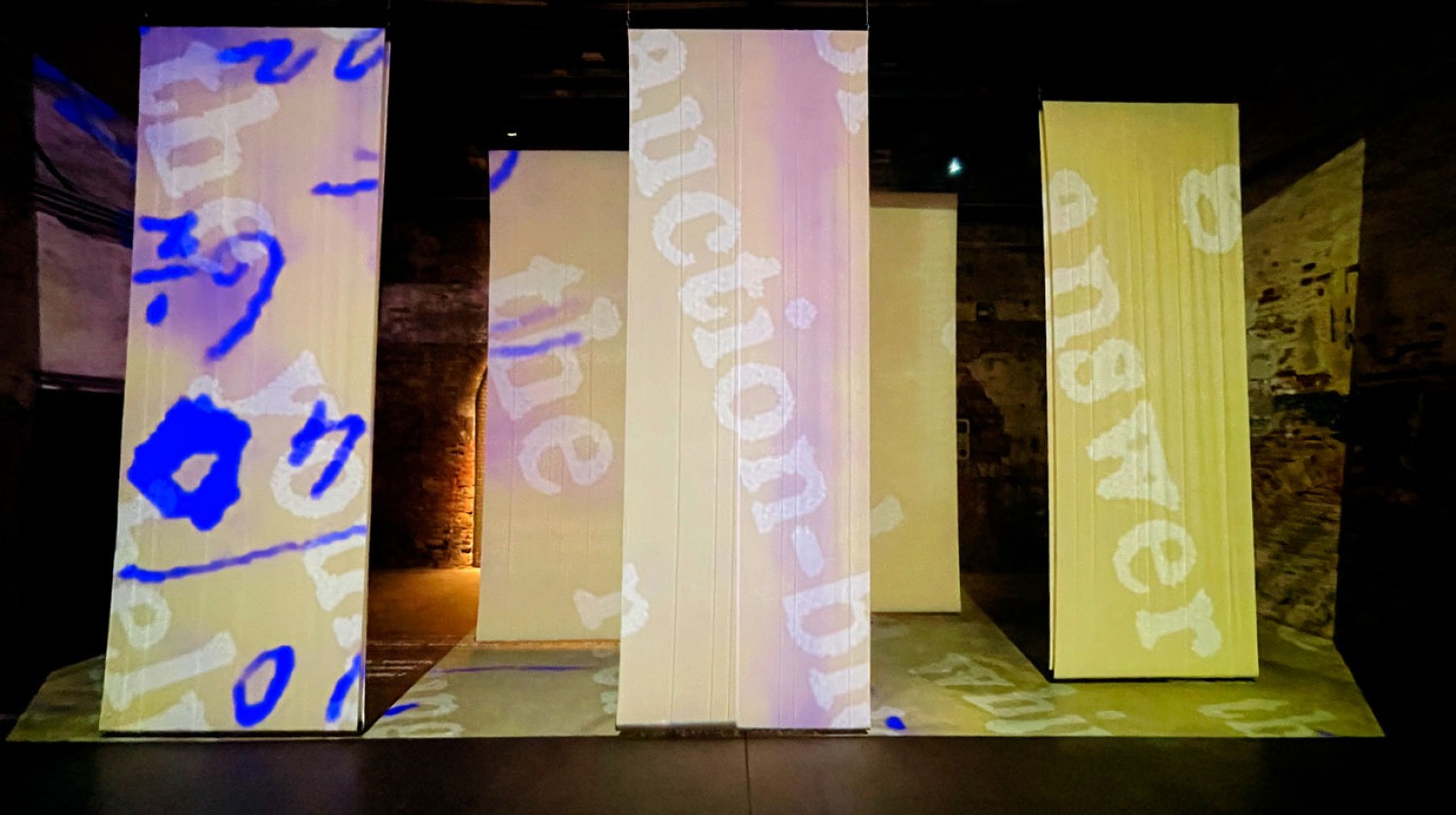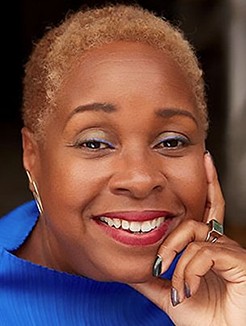
Installation at Venice Architecture Biennale.
Scholar of architecture and race to visit campus in March
Renowned architect Mabel O. Wilson, widely recognized for her explorations of race, historical narratives, archives and the built environment, will visit campus as an A.D. White Professor-at-Large for a series of talks, classroom visits and seminars from March 4-8, including a keynote lecture on March 7.
Wilson, professor of architecture and African American and African diaspora studies at Columbia University, partnered with Sean Anderson, B.Arch./B.S. ’96, associate professor of architecture in the College of Architecture, Art and Planning (AAP), among others, on the 2021 exhibition “Reconstructions: Architecture and Blackness in America” at New York’s Museum of Modern Art.
She also collaborated on the design team for the Memorial to Enslaved Laborers at the University of Virginia with J. Meejin Yoon, B.Arch ’95, the Gale and Ira Drukier Dean of AAP, and Eric Höweler, B.Arch. ’94, M.Arch. ’96. Last year, Wilson, Yoon and Höweler revisited parts of the archive behind the memorial to create “unknown, unknown,” an immersive installation included in the 2023 Venice Architecture Biennale.

Black Reconstructions Collective banner at the Reconstructions: Architecture and Blackness in America exhibition (2021) at the Museum of Modern Art.
“Mabel Wilson is a preeminent scholar whose powerful work reopens and reactivates the historical record, shedding new light on the past, calling into question our assumptions about the present and revealing possible futures,” Yoon said. “Her intersecting methods as a historian, designer and curator tell new stories, affirming a breadth of human experience that necessarily connects the past with the present moment. It is an honor and a pleasure to welcome Mabel to campus as A.D. White Professor-at-Large, and to our Cornell and AAP communities, where her contributions will no doubt add immense value for many years to come.”
Beyond Wilson’s curatorial and creative work, she has long been recognized for her scholarship on U.S. history and African American and African diaspora studies, for which she was recently awarded a John Simon Guggenheim Foundation Fellowship and the Berthold Leibinger Fellowship at the American Academy in Berlin.
“I’m excited for many reasons for this opportunity – especially to connect with incredible colleagues, collaborators, friends and interlocutors who are now at Cornell and have helped inform my work over the years,” Wilson said.
While in Berlin, Wilson worked on “Building Race and Nation,” a manuscript that looks at American civic architecture from the American Revolution to the Civil War to understand how a racial imagery was formed and has become what we now know, through racial science, as racial difference.
“In the U.S., early ideas around whiteness were triangulated between Blackness and the legacy of the enslavement of Africans, and Native Americans and the dispossession of their lands,” she said. “And so, thinking about the built environment, race and the history of Germany – where the nation-state and an understanding of European whiteness and what counts or who counts as European, and perhaps even white – offered some very instructive lessons.”

Venice Architecture Biennale.
Wilson is director of the Institute for Research in African American Studies at Columbia. Since 2009, she has served as the co-director of Global Africa Lab (GAL), a research initiative that explores the spatial topologies of the African continent and its diaspora. Wilson is also a founding member of Who Builds Your Architecture?, a coalition of architects, activists, educators and scholars that examines the connections between labor, architecture and the global networks that form around building buildings. Last year Wilson participated in the Venice Architecture Biennale, The Laboratory of the Future, curated by Lesley Lokko.
“There are different kinds of configurations of events and collectives and ways of doing work that aren’t conventional architectural practice per se,” Wilson said. “At the biennale, I found collaboratives that were thinking about questions of environmental justice in Uganda related to questions another group was exploring in Sweden. There are new threads of ideas and forms of practice that bring people together. Artists were included in the mix at Venice, which opened new trajectories of practice. The richness of such an endeavor all depends on the questions that frame the curatorial direction so that work from around the world can be made legible.”
Wilson’s keynote lecture, “Freedom and Unfreedom: The Construction of Washington City in the District of Columbia,” will be held on March 7 at 5:15 p.m. in Milstein Hall. The talk is free and open to the public, and no registration is required.
Media Contact
Abby Kozlowski
Get Cornell news delivered right to your inbox.
Subscribe

